Falling in love with ‘quan ho’ songs
After a long time, I just returned to Viet Yen - the first district in Bac Giang province recognized as a new-style rural area. ‘Quan ho’ is the unique cultural value of the Kinh Bac region, the Vietnamese nation and now the humanity. No matter how many papers we write about ‘quan ho’ on, we cannot know all the beauty of this folk art.
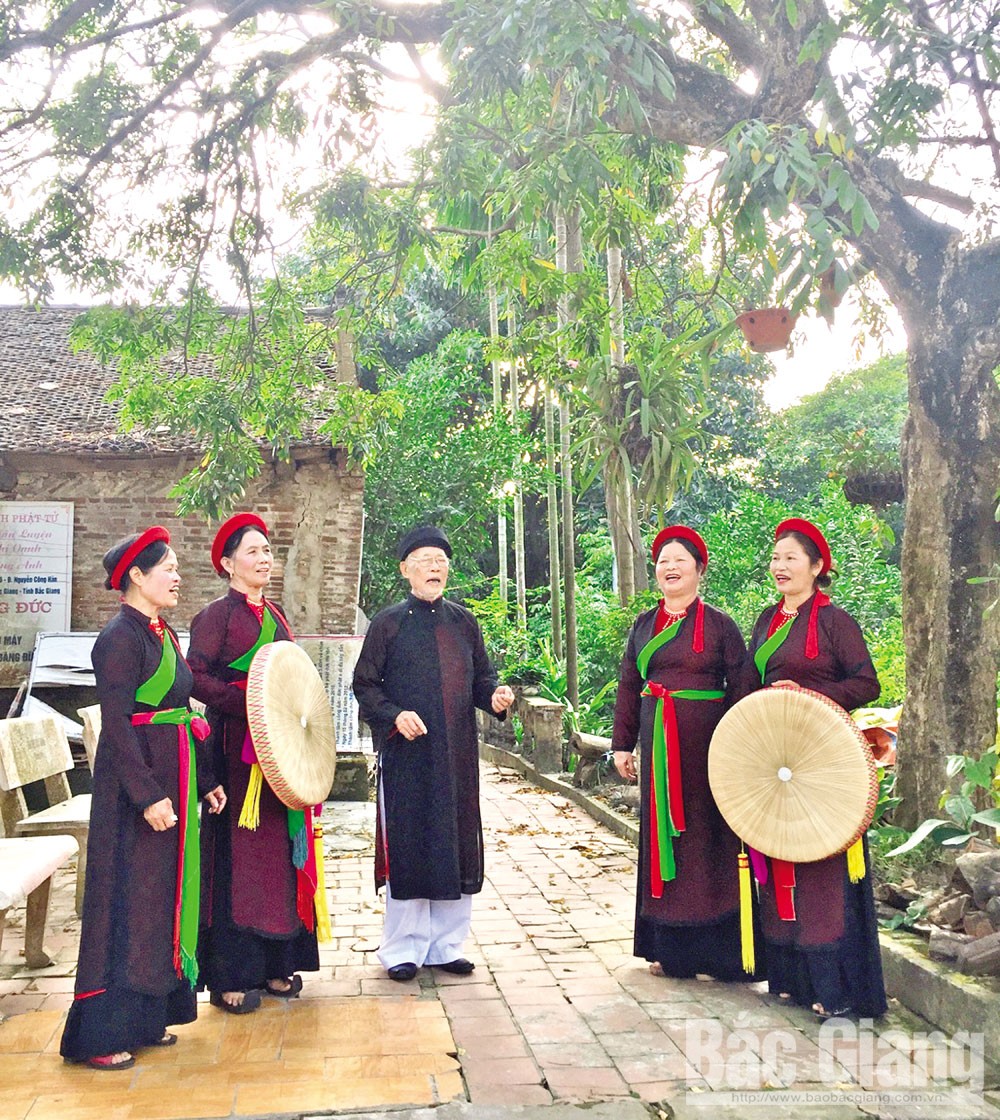 |
|
People's Artisan Hoac Cong Cho and other members of the Trung Dong ‘quan ho’ club in Viet Yen district. |
The first place we visited was Bo Da pagoda, which was built in the 18th century. While in many places, people spent huge sums of money building big pagodas and and majestic statues, Bo Da pagoda still retains its traditional architecture of ancient Vietnam.
Tho Ha is one of the ‘quan ho’ villages in Viet Yen which still keeps the traditional style of ‘quan ho’ singing. People who thoroughly understand this unique folklore treasure just say they play ‘quan ho’, not sing ‘quan ho’ as we often call. Playing ‘quan ho’ is very meticulous. Drowning into ‘quan ho’ sentences is a must and practicing ‘quan ho’ singing is also a hard work.
Meritorious artisan Nguyen Phu Hiep said: “We rediscover the ancient ways of ‘quan ho’ singing, pushing the inner air to the outside called hoi dan dien. It's not easy. When practicing ‘quan ho’, the flanks are very painful”. Not only singing softly and skillfully romantic ‘quan ho’ sentences, Nguyen Phu Hiep has also worked hard to collect about 600 ancient ‘quan ho’ sentences and teach them to the younger generation.
Bo Da pagoda hosts a ‘quan ho’ singing festival for more than 50 teams on the 21st day of the first lunar month every year. According to Dao Trong Ca, head of Viet Yen district's Division of Culture, Information and Sports, Viet Yen has a great desire to create a ‘quan ho’ space along the northern bank of the Cau River with folk songs following right rules, from the songs to invite water and betel to those to say goodbye to friends in the communal house, pagoda and river.
Leaving Bo Da pagoda, we went to Trung Dong pagoda to enjoy ‘sunset quan ho’ as many people say. That's why in this village, there are many seniors joining the 38-member ‘quan ho’ club, including Hoac Cong Cho, a 83-year-old People's Artisan. However, the oldest member in the club is Hoac Thi Chuong, 90.
At the age of seven, Hoac Cong Cho followed his mother to go to sing ‘quan ho’ and later became a collector of these famous folk songs. He was awarded the title of Meritorious Artisan in 2016 and the title of People's Artisan in 2019.
According to him, everyone in Trung Dong knows how to sing ‘quan ho’. ‘Quan ho’ songs immerse themselves in the village space with only one winter-spring crop per year. The men and women sing in response to each other when growing or harvesting rice, and from one yard to the other...
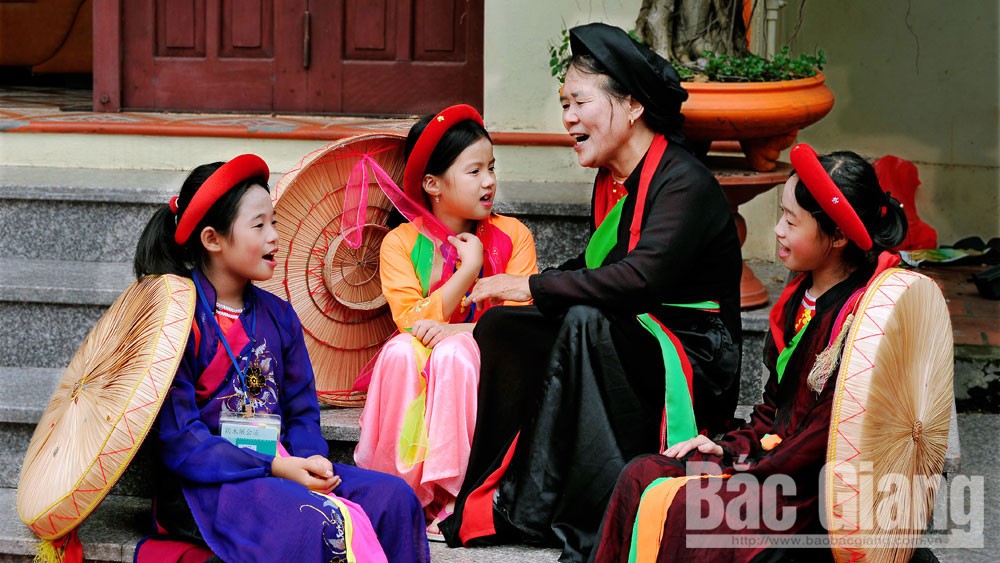 |
|
The artisan transfers Quan ho folk singing to young generation. |
Thanks to that, in Trung Dong we can see many families like that of Vu Thi Huong with many generations loving and singing ‘quan ho’. Huong, 68; her daughter Hoang Thi Thuong, 48; her son Hoang Cong Hien, 40; and her 19-year-old grandson Hoang Dai Duong all can sing ‘quan ho’.
Despite being passionate about ‘quan ho’, they are still concerned. The senior male and female singers said: “Since an industrial zone was set up in the village, locals have flocked there to earn money. Not many people join in the ‘quan ho’ club. If you come here on Sunday, we will call more people to sing. Now they're at work.”
The problem of both economic development and preservation and promotion of national cultural values still needs a solution. In any situation, we cannot give up culture. Culture is not just a trace of the past but the energy of life today and tomorrow. It seems that I have read it from Viet Yen, where I came back and become more immersed in ‘quan ho’ sentences!
Nguyen Huu Quy
 Bắc giang
Bắc giang






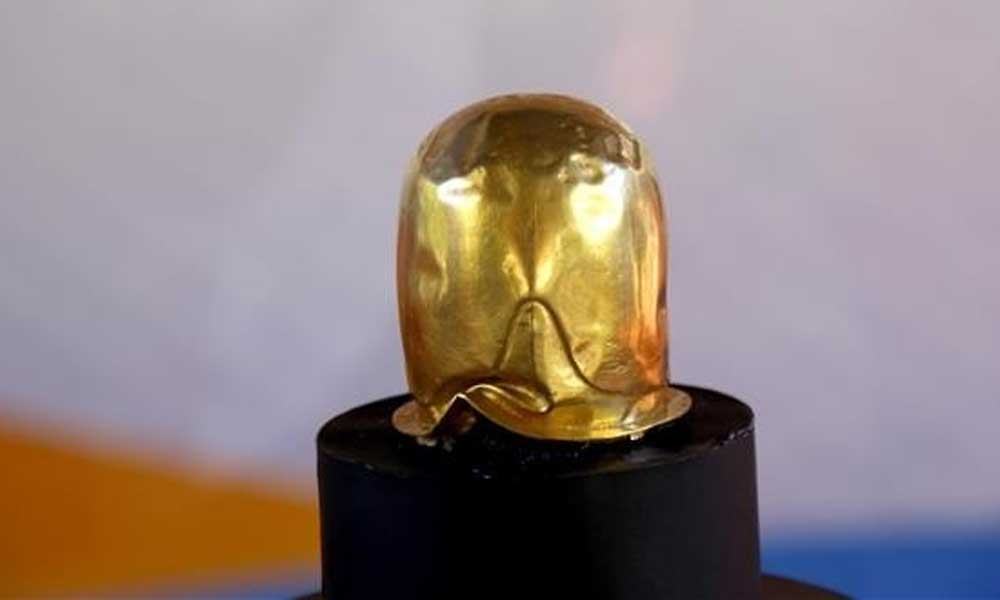

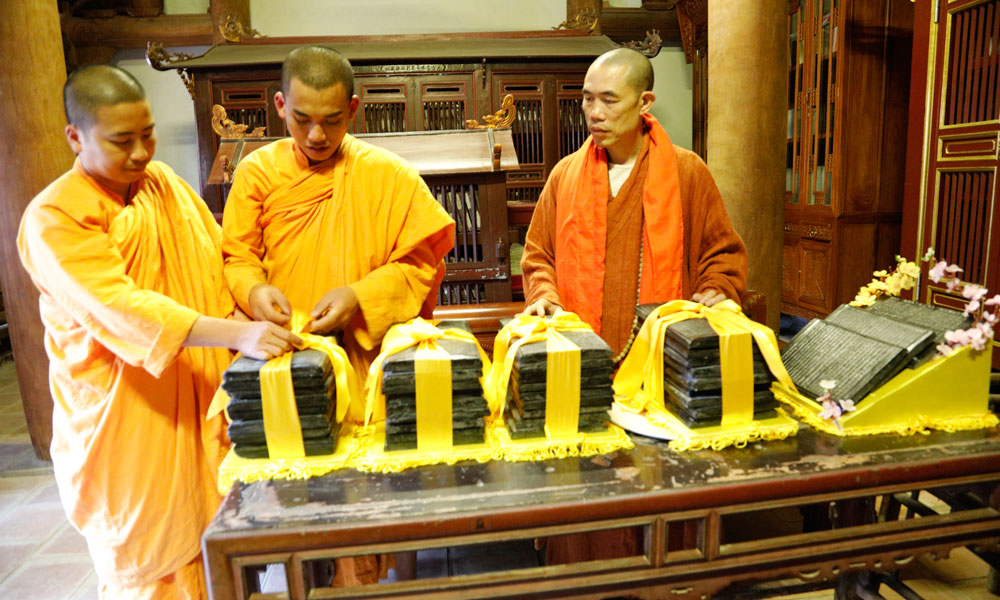


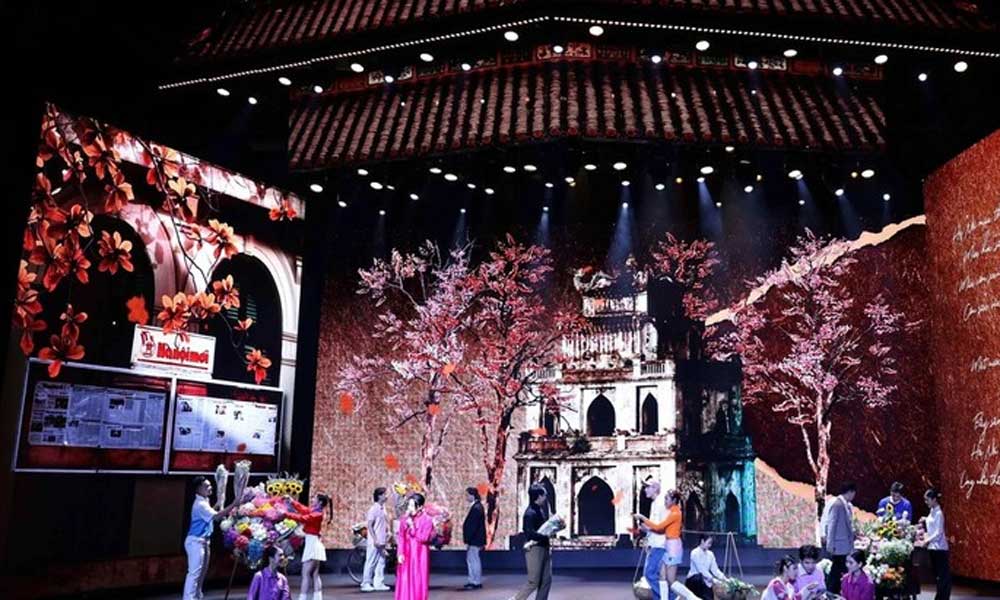




Reader's comments (0)